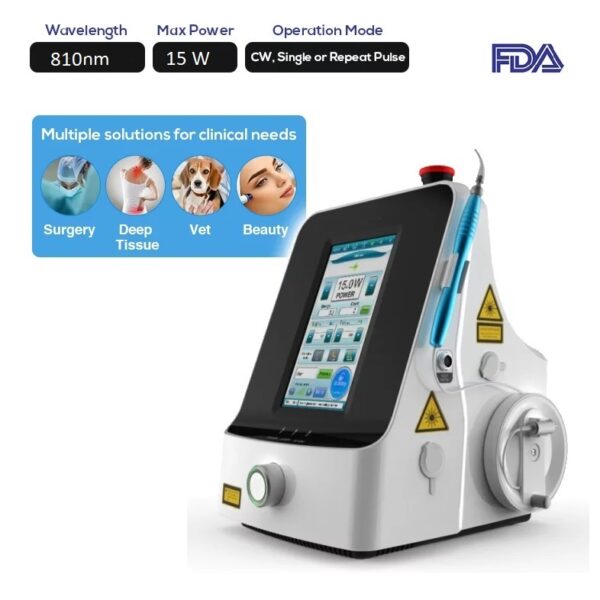Endoscopic laser therapy has grown in importance and popularity in gastroenterology. Outpatient palliative treatment for blocking gastrointestinal neoplasms has become critical.
Endoscopic laser surgery, in particular, is a sort of cyclodestructive surgery in which a portion of the ciliary body, the component of the eye that creates intraocular fluid, is destroyed. This aids in lowering ocular pressure.
This technique of surgery demands the use of a gadget that allows your surgeon to look into your colon and execute treatments without the need for big incisions, resulting in a shorter recovery period and less pain and suffering.
Several laser devices are regularly created and utilized by surgeons and gastroenterologists to achieve this goal. Nonetheless, not all of them proved to be as effective as required.
The Portable Surgery 810nm Diode Laser System FDA LASER-1.2A appears to be one of the most professional laser equipment that this disease’s doctors have frequently employed.
The tissue components haemoglobin and melanin interact more with the blue laser light even at reduced power. Accordingly, this allows LASER-1.2A to perform better and softer colon cutting at 810 nm.
In this way, the device can be the most appropriate for all medical applications and removals because of its improved cutting performance.
What also makes the LASER-1.2A highly recommended by surgeons is that it displays an accurate alignment and exact sighting during the treatment. All thanks to its green aiming beam.
Once over, the device is supported with a fibre guide laser. It is not only compatible with various endoscopic uses, but it is also sterilizable.
This, in turn, avoids cross-infection while ensuring a clean and bloodless operational region with little thermal damage.
The LASER-1.2A guarantees increased cutting effectiveness, much higher than the one obtained with infrared lasers. Surgical resection of potentially curable cancers is always recommended.
To sum up, laser fluorescence techniques may lead to earlier detection, more precise localization, and even curative ablation of gastrointestinal malignancy.
Reference: Endoscopic laser therapy in gastroenterology.
Disclaimer: Although the information we provide is used by different doctors and medical staff to perform their procedures and clinical applications, the information contained in this article is for consideration only. SIFLASER is not responsible neither for the misuse of the device nor for the wrong or random generalizability of the device in all clinical applications or procedures mentioned in our articles. Users must have the proper training and skills to perform the procedure with each Laser System.
The products mentioned in this article are only for sale to medical staff (doctors, nurses, certified practitioners, etc.) or to private users assisted by or under the supervision of a medical professional.

